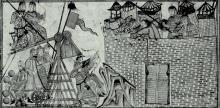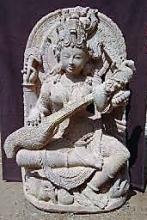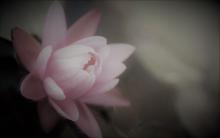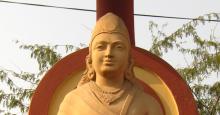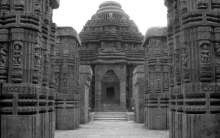Jayāpīḍa (around 800 CE) says that Ratnāvalī was authored by the king. Jayadeva (around 11th Century CE) also concurs with this opinion – he says that the play is by Harṣavardhana. Madhusūdana (circa. 1654 CE) calls him kavi-jana-mūrdhanya and ratnāvalyākhya nāṭikā-kārtā.[1] In fact, we don’t even have to rely upon external testimonies to attest that Harṣa was a poet and a playwright.
Author:hari
We know the biographical details of only a few kings who ruled ancient India. Other than Candragupta Maurya and Aśoka, the most famous of them, we know about Harṣavardhana to a great extent; Bāṇa-bhaṭṭa’s Harṣacarita, Hiuen Tsang’s (Xuanzang) travelogues as well as the inscriptions of Harṣa and Immaḍi Pulikeśi (Pulikeśi II) are valuable sources.
भारत में हम ऐसे अनेक साम्राज्यो के उदाहरण पाते है कि एक क्षेत्र के साम्राज्य का आधिपत्य किसी अन्य क्षेत्र पर स्थापित हुआ हो। जैसे नेपाल और मिथिला के शासक सेन वंश तथा उत्तरभारत के सोलंकी लोग, कर्नाटक क्षेत्र से यंहा स्थापित हुए थे। इसी प्राकर राठोड़ वंश भी कर्नाटक के राष्ठ्रकूटों के वंशज है। इसी प्रकार गंगा के तटवासी गंग लोग दक्षिणी कर्नाटक के शासक बन गये थे। विजयनगर साम्राज्य के पतन के उपरांत नायक राजाओं द्वारा आंध्र, तमिलनाडु में प्रतिस्थापित हो कर दक्षिणांध्र – युग के रुप में उभरा।
‘ಪುರುಷಸರಸ್ವತಿ’ (ವಿ.ಸೀ. ಸಂಪದ, ಬೆಂಗಳೂರು, ೧೯೯೪) ಸಣ್ಣದಾದರೂ ಹಿರಿದಾದ ಕೃತಿ. ಕೇವಲ ಐವತ್ತು ಪುಟಗಳ ಒಳಗೆ ಕರ್ಣಾಟಾಂಧ್ರಸವ್ಯಸಾಚಿ ರಾಳ್ಲಪಲ್ಲಿ ಅನಂತಕೃಷ್ಣಶರ್ಮರ ಸ್ಫಟಿಕೋಪಮ ಜೀವನವನ್ನು ಕಟ್ಟಿಕೊಡುವ ರಾಯರು ಅನುಬಂಧವಾಗಿ ‘ಸಂಗೀತದ ಮೂಲದ್ರವ್ಯಗಳು’ ಎಂಬ ಶರ್ಮರ ತೆಲುಗು ಬರೆಹವೊಂದರ ಕನ್ನಡ ಅನುವಾದವನ್ನು ಒದಗಿಸಿ, ಅವರ ಜೀವನಪಥದ ಪ್ರಮುಖ ಘಟ್ಟಗಳನ್ನೂ ಅವರಿಗೆ ಸಂದ ಪ್ರಶಸ್ತಿಗಳನ್ನೂ ಅವರು ಬರೆದ ಗ್ರಂಥಗಳ ವಿವರಗಳನ್ನೂ ನೀಡಿದ್ದಾರೆ. ಹೀಗೆ ಇದೊಂದು ಸ್ವಯಂಪೂರ್ಣವಾದ ರಚನೆ. ಶರ್ಮರ ಜನ್ಮಶತಮಾನೋತ್ಸವದಲ್ಲಿ ಪ್ರಕಟವಾದ ಈ ಕೃತಿಗೆ ಸಂದರ್ಭದ ಔಚಿತ್ಯವೂ ಸಂದಿದೆ.
The nature of various characters in the play is clear. In the world of Sanskrit literature, it is rare to find such well-defined characters and sets of events that naturally progress from one to another. It wouldn’t be wrong to say that in the triad constituted by the plot, emotion, and characterisation, the last, i.e., the characterisation in the play merits the best applause; the plot naturally depends on character.
रेड्डियों का विजय घोष तथा गजपतियों का सामर्थ्य
प्रतापरुद्र के अवसान के उपरांत आंध्र में रेड्डी राजाओं ने मुस्लिम आक्रमणों का सामना किया था। इनमें वेमारेड्डी तथा उसका अनुज मल्लारेड्डी मुख्य थे। चौदहवीं शताब्दी में मुस्लिम आक्रमणों से आंध्र को सुरक्षित रख पाने में उनकी भूमिका प्रशंसनीय रही।
The Yajnadevam paper is a recent research publication that presents a novel and pioneer approach to deciphering the Sindhu-Sarasvati Valley Script (SSVS), which has famously evaded the grasp of multitudes of previous researchers. The vast variety of signage, rarity of long inscriptions, and the lack of a Rosetta Stone—a multiscript inscription containing the same information to facilitate referral—have made this field nigh unassailable for many a decade.
Because he was so smart, Cāṇakya always exercised caution in his actions; he was all eyes at all times; he was able to estimate the enemy’s strategy by merely listening to Dāruvarmā’s replies and Stanakalaśa’s poems; he gathered the kind of ploys Rākṣasa had plotted to eliminate Candragupta and came up with counter-strategies for each. He ensured that the deeds of his enemies only worked against those who had hatched the plans.
प्राचीन आंध्र में हमें इस प्रकार के क्षात्र भाव के दर्शन नहीं होते हैं। वहां के प्रथम शासक सातवाहन लोग थे किंतु उन्होंने पूरे दक्षिण भारत पर शासन किया था। आंध्र में वही के स्थानीय शासकों में काकातीय वंश प्रमुख है गणपतिदेव (1198-1262) काकतीय राजवंश का मुख्य शासक रहा है। बाल्यावस्था में ही उसे यादवों ने बंदी बना लिया था किंतु उसने स्वयं को स्वतंत्र कर अपना एक अलग साम्राज्य खड़ा कर लिया। यह काकतीय साम्राज्य गणपतिदेव के प्रयासों के कारण लगभग सौ वर्षों के कुछ अधिक समय तक टिका रहा।


